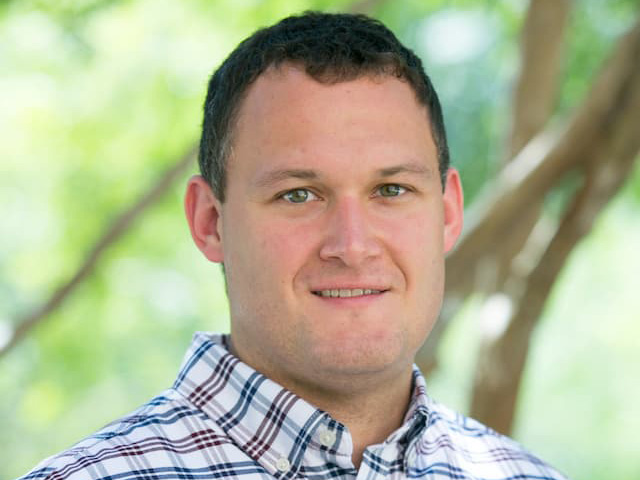
Dale Wilger, associate professor of chemistry and biochemistry at Samford University's Howard College of Arts and Sciences, has mentored students through his research projects since 2015. In that time, students and Wilger developed an organic reaction that synthesizes a molecule known as an indenone.
"Many different research groups have developed indenone syntheses in the past because these molecules are often biologically or medicinally active," Wilger said. "The reaction developed within my lab is unique in that it allows for synthesizing previously unknown indenone compounds that contain a silicon atom at a key position."
Wilger and his student research group hypothesized that the silicon atom should be modifiable to produce an even broader range of new indenones. It is a concept Wilger and students have talked about for years but just haven't had the resources to prove it. However, that's about to change. Wilger received an Organic Syntheses Grant, which will fund one undergraduate summer researcher at Samford to investigate this hypothesis.
"I am overwhelmingly grateful for this award and for the support it provides my research students," Wilger said. "Proving this hypothesis will help bridge the gap between the fundamental research previously performed in my lab and the real-world application of these compounds to benefit our society."
Junior Jaren Lobb, a biochemistry major and physics minor, is the student selected for this opportunity. Drawn by his profound interest in organic chemistry, he has actively sought to work in Wilger's lab.
"I feel very honored to have been selected for this project, and when told, it came as a pleasant surprise," Lobb said. "It is an exceptionally rare opportunity, and I feel lucky to have been considered. I am most excited about working in an organic lab, which I have wanted to do since I took my first semester of Organic Chemistry with Dr. Wilger."
Wilger said this grant will provide Lobb with critical technical training not traditionally learned in the classroom. If all goes well with the experiment, he will have the privilege of publishing the findings in a scientific manuscript.
"That would be a remarkable opportunity that could help Jaren as he applies for graduate programs and beyond," Wilger said.
"I am pursuing a PhD in chemistry after graduating from Samford," Lobb said. "I am especially interested in organic chemistry, but I have also developed an interest in physics, so I have begun looking for one that emphasizes both."
